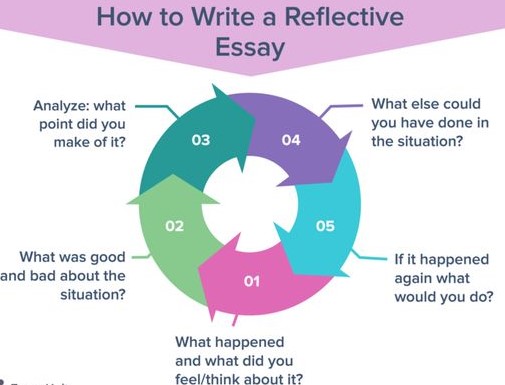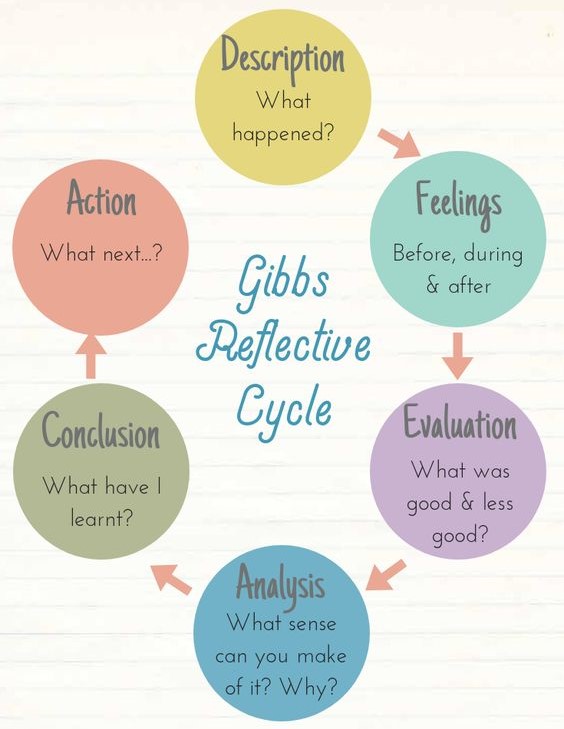
Table of Contents
The reflective nursing essay is a powerful tool for nursing students and professionals alike. It allows them to delve into the complexities of their practice, analyze their experiences, and glean valuable insights for personal and professional growth. However, crafting a truly compelling and insightful reflective nursing essay requires more than just recounting events. It demands careful planning, meticulous introspection, and a clear understanding of the essay’s purpose.
This article will delve into the art of writing a stellar reflective nursing essay. It offers definitive strategies and tips that can transform your raw experiences into a captivating and impactful piece of writing.
What Makes a Reflective Nursing Essay Stand Out?
The core of a reflective nursing essay lies in the deep analysis of a specific nursing experience. It’s not merely a retelling of events, but a journey through the lens of critical reflection. The essay should demonstrate your ability to:
- Identify the Experience: Clearly articulate the chosen nursing experience, providing enough detail to allow the reader to understand the context and significance.
- Reflect on Your Actions and Feelings: Examine your own actions and reactions within the experience, identifying your strengths, weaknesses, and areas for improvement.
- Apply Theoretical Frameworks: Integrate relevant nursing theories and frameworks to analyze your experience, demonstrating your ability to connect theory to practice.
- Draw Insights and Lessons Learned: Distill the key takeaways from the experience, highlighting the impact it had on your understanding of nursing and your future practice.

Tips for Crafting a Compelling Reflective Nursing Essay
Choosing the Right Experience: Finding the Heart of Your Essay
The first step in writing a compelling reflective nursing essay is selecting a meaningful experience. It can be a challenging situation, a particularly rewarding interaction with a patient, or a personal turning point that impacted your nursing perspective. Consider these factors:
- Personal Significance: Choose an experience that resonates with you on a personal level, one that sparked your curiosity, raised ethical questions, or pushed you to learn and grow.
- Relevance to Nursing: The chosen experience should relate to the core values and principles of nursing, allowing you to explore concepts like patient advocacy, ethical decision-making, or the importance of empathy and compassion.
- Potential for Learning: The experience should offer opportunities for reflection and growth. It should have exposed you to new perspectives, challenged your existing assumptions, or prompted you to seek further knowledge and development.
The Art of Reflection: Delving Deep and Exploring the Unseen
Once you’ve selected your experience, the real work begins: introspection. This is where you move beyond simply recounting the event and delve into the depths of your own thoughts, feelings, and actions. Ask yourself:
- What were my initial thoughts and feelings about the situation?
- How did I respond to the situation?
- What were my motivations and values driving my actions?
- What were the ethical dilemmas or challenges I encountered?
- How did the experience impact my understanding of nursing?
- What could I have done differently, and what lessons did I learn?
Utilizing Frameworks for Deeper Insight:
Using established reflective frameworks can provide structure and depth to your analysis. Some popular frameworks include:

- Gibbs’ Reflective Cycle: This framework encourages a structured approach to reflection, focusing on the experience itself, your feelings, evaluation, analysis, conclusions, and action plan.
- Kolb’s Learning Cycle: This framework emphasizes the cyclical nature of learning, exploring concrete experience, reflective observation, abstract conceptualization, and active experimentation.
- John’s Model of Reflection: This framework encourages a deeper exploration of the experience by focusing on description, feelings, evaluation, analysis, conclusion, and action plan.
Weaving in Theory: Linking Experience to Nursing Knowledge
A strong reflective nursing essay not only reflects on personal experiences but also demonstrates your understanding of relevant nursing theories and frameworks. This demonstrates your ability to critically analyze your practice and apply theoretical concepts to real-world situations. Consider:
- Patient-Centered Care: How did the experience reflect the principles of patient-centered care, such as respecting patient autonomy, promoting patient empowerment, and fostering patient-nurse partnerships?
- Ethical Decision-Making: Did the experience raise ethical dilemmas or challenge existing ethical frameworks? How did you navigate those challenges and what ethical principles guided your decisions?
- Communication: How did your communication with the patient, colleagues, or family members influence the outcome of the experience? Did you encounter any communication barriers and how did you address them?
- Cultural Competence: Did the experience involve cultural considerations or differences in perspectives? How did you demonstrate cultural sensitivity and adapt your approach accordingly?
The Power of Narrative: Telling Your Story with Impact
While the reflective nursing essay requires careful analysis, it’s also an opportunity to engage the reader with a compelling narrative. Your story should be:
- Engaging and Vivid: Use descriptive language to paint a picture of the experience, allowing the reader to feel the emotions and understand the complexities involved.
- Organized and Structured: Present your thoughts and insights in a logical sequence, using clear transitions between paragraphs to guide the reader through your reflection process.
- Honest and Authentic: Share your vulnerabilities, doubts, and challenges honestly. Your genuine reflection will resonate with the reader and showcase your self-awareness and growth.
- Reflective and Insightful: Focus on the lessons learned, the impact the experience had on your understanding of nursing, and the changes it inspired in your practice.

Polishing the Final Product: Crafting a Stellar Reflective Nursing Essay
Once you’ve developed your ideas and crafted your narrative, it’s time to polish your essay into a polished and professional product.
- Proofreading and Editing: Pay close attention to grammar, spelling, punctuation, and clarity. Ensure your essay is free of errors and flows smoothly.
- Word Count: Adhere to the specified word count. Be concise and avoid unnecessary repetition.
- Formatting: Follow the required formatting guidelines for your submission. This includes font size, line spacing, margins, and citation style.
- Feedback: Seek feedback from peers, professors, or mentors. Their perspectives can offer valuable insights into the clarity, organization, and impact of your writing.
Beyond the Grade: The Lasting Impact of Reflective Nursing Essays
While the reflective nursing essay may seem like an academic assignment, its true value lies in its ability to contribute to your personal and professional growth. Writing reflective essays allows you to:
- Deepen your understanding of nursing: By reflecting on your experiences, you develop a more nuanced and comprehensive understanding of the complexities of nursing practice.
- Improve your critical thinking skills: Engaging in critical reflection hones your ability to analyze situations, identify patterns, and draw meaningful conclusions.
- Identify areas for improvement: Reflecting on your experiences allows you to acknowledge your strengths and weaknesses, leading to targeted professional development goals.
- Enhance your self-awareness: The process of reflection encourages introspection, helping you become more aware of your values, biases, and assumptions.
- Develop your communication skills: Crafting a compelling and insightful reflective nursing essay requires clear, concise, and engaging writing, enhancing your ability to effectively communicate your thoughts and ideas.
Topic Examples for Reflective Nursing Essays
Here are 5 topic examples for a reflective nursing essay:
- A Difficult Patient Interaction: Reflect on a challenging encounter with a patient, focusing on your emotional response, the ethical dilemmas involved, and what you learned about patient-centered care.
- A Significant Clinical Skill: Reflect on your experience mastering a particular clinical skill (e.g., starting an IV, performing a sterile dressing change, managing pain). Describe the challenges, the support you received, and how this experience has shaped your nursing practice.
- The Impact of a Nursing Theory: Choose a nursing theory (e.g., Watson’s Theory of Caring, Orem’s Self-Care Deficit Theory) and reflect on how its principles have influenced your understanding and approach to patient care.
- Personal Growth as a Nurse: Reflect on a personal experience (e.g., dealing with grief, managing stress) and how it impacted your nursing practice. How has it changed your perspectives on empathy, communication, or professional boundaries?
- The Ethical Dilemma of a Nursing Decision: Reflect on a time you faced an ethical dilemma in your nursing practice. Describe the situation, the different perspectives involved, and the decision you made. Discuss how this experience shaped your ethical framework.

Remember to focus on your personal insights and learning from each topic. Use specific examples and details to illustrate your points and connect your reflections to your nursing practice.
Common Pitfalls to Avoid in Reflective Essays
While reflective essays, especially reflective nursing essays, can be a powerful way to demonstrate your learning and growth, there are some common pitfalls to watch out for:
1. Lack of Focus and Structure:
A Reflective nursing essay often struggles with a lack of clear direction. Without a well-defined focus and structure, your reflections can become disjointed and lack coherence. Ensure you have a clear thesis statement and follow a logical progression of ideas.
2. Overgeneralization and Vague Language:
A reflective nursing essay should be specific and concrete. Avoid using overly general or vague language. Instead of saying “I learned a lot,” describe the specific skills, knowledge, or attitudes you gained.
3. Missing the “So What?”:
The reflective nursing essay should not only recount your experience but also connect it to your personal and professional development. What insights did you gain? How did the experience change your perspectives or practices? This is the “so what?” element that makes your reflection meaningful.
4. Ignoring the Reader’s Perspective:
While a reflective nursing essay is personal, remember your audience. Be mindful of the reader’s knowledge and background. Explain technical terms or concepts, and provide context for your experience.
5. Too Much Focus on the Event, Not Enough on the Reflection:
Writing a reflective nursing essay is not just about describing the event. Instead, it is about analyzing and reflecting on the event. Strike a balance between narrating the experience and discussing your insights, feelings, and learnings.
6. Lack of Evidence or Support:
Your reflections should be backed up with evidence from the experience. Use specific examples, quotes, or observations to support your claims and illustrate your points.
7. Ignoring the Importance of Ethical Considerations:
A reflective nursing essay often involves ethical dilemmas or sensitive situations. It’s crucial to acknowledge and discuss the ethical implications of your actions and decisions.
By avoiding these pitfalls, you can create a compelling reflective nursing essay that demonstrates your critical thinking, self-awareness, and professional growth.
Embracing the Power of Reflection

The reflective nursing essay is more than just an academic assignment. It’s a powerful tool for self-discovery, professional development, and fostering a deep understanding of the nursing profession. By choosing a meaningful experience, engaging in thoughtful reflection, and crafting your narrative with clarity and impact, you can create a reflective nursing essay that stands out as a testament to your growth, insights, and commitment to the nursing profession. Remember, the power of reflection lies in its ability to transform experiences into learning opportunities, shaping you into a more confident, compassionate, and competent nurse.
The Best Reflective Nursing Essay Writing Assistance
At Nursing Papers, we understand that crafting a compelling reflective nursing essay can be a significant challenge to most students. Thus, we offer customized nursing essay writing services to help you navigate the tasks of assignment writing seamlessly. Get in touch with us today for the best nursing essay, case study and research paper writing help!







